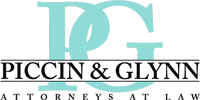
If you were injured in an accident caused by someone else, you probably want to know more about your rights in a Florida personal injury case. Understanding the key concepts requires some general knowledge about the terms that are relevant to these claims, so you can learn the basics by reviewing the Top 10 terms that apply to personal injury cases.
- Statute of Limitations: There are time restrictions on how long you have to file a lawsuit in a personal injury case. In Florida, a law called the statute of limitations allows you four years in most negligence claims from the date of an accident to sue the responsible party. If you do not go to court within this time frame, you are forever barred from doing so. There are shorter periods that may apply against governmental entities so you should not delay seeking legal advise.
- Duty: People have a legal obligation to conduct themselves in such a way as to not cause a risk of harm to others. This duty is the foundation of a case based on negligence. Examples would be the obligation of motorists to drive safely and property owners to maintain the premises free from dangerous conditions.
- Negligence: Most personal injury cases in Florida are based upon negligence, which involves a breach of legal duty. If an individual does not act in the same way as a reasonable person would under the circumstances, he or she may be negligent in causing an accident.
- Damages: You suffer losses if you are hurt due to someone else’s negligence, and these are the basis for a claim for damages. Economic damages are the ascertainable losses you incur, including medical costs and lost wages. Non-economic damages are less definable, such as pain and suffering, and emotional distress.
- Compensation: This term refers to the way you are paid for the damages you suffer in an accident that results from negligence.
- Contributory Negligence: In some personal injury scenarios, you may act contrary to the way a reasonable person would. This negligence is attributable to you, so your compensation may be reduced by your own percentage of fault.
- Liability: A person who acts negligently and causes injuries to another person is legally liable to pay compensation to the victim. In other words, an individual who breaches the legal duty of care incurs liability for the damages a victim suffers.
- Strict Liability: Some personal injury cases do not require you to show that the responsible party acted negligently. An example is liability for defective products, where you do not need to prove fault on behalf of the manufacturer.
- Settlement: Some cases can be resolved out of court through settlement, where you release your claim in exchange for payment of agreed-upon compensation.
- Wrongful Death: When negligence causes a fatality, certain “survivors” are entitled to bring a claim that is similar to a personal injury case. Economic and non-economic damages are available to surviving family members.
Set Up a Free Case Assessment with an Ocala, FL Personal Injury Attorney
For more information on personal injury terms and concepts, please call Piccin & Glynn, Attorneys at Law at 352-558-8480 or visit visit us online. We can schedule a free consultation at our Ocala, FL office to explain more about the process and your rights as a victim.
Resource:
leg.state.fl.us/Statutes/index.cfm?App_mode=Display_Statute&URL=0000-0099/0095/Sections/0095.11.html

